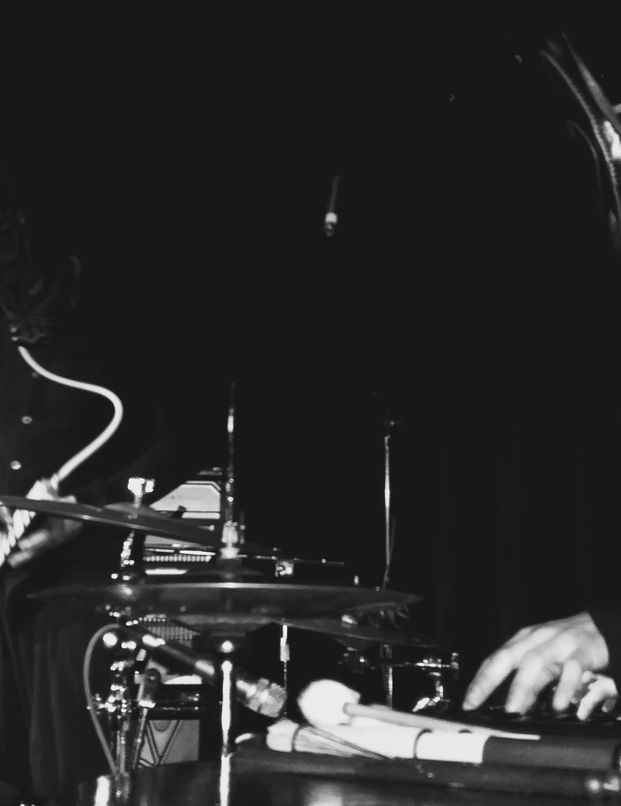Lambert’s first and previous UK shows were at Camden’s Roundhouse, supporting Ólafur Arnalds – arguably now the biggest artist in this very niche genre of ambient, indie classical music, which has been becoming exponentially huge in a very short space of time. With this in mind, you wonder how Lambert feels about his first UK headline show being in the tiny space that is Servant Jazz Quaters in Dalston, with around thirty people huddled together, having already played one of the capital’s largest and finest venues.
Despite having two albums to his name, he is not well known here, and it is apparent that those in attendance are either just after a night of new music, or very savvy listeners.
With no dressing room to speak of, a man walks on stage and then disappears behind the piano. A few minutes later, a man wearing a mask with large horns emerges from behind the beautiful keyboard, briefly stares at the audience, and then proceeds to sit down at his stool to play impressionistic piano music.
Enter Lambert. The audience, perhaps understandably, are slightly taken back by the apparent intrusion of this masked figure, and there is no welcoming applause. Nonetheless, they are soon taken in by the charms of the music, with strong influences from the likes of Chopin and Debussy, but with an unmistakeable contemporary edge.
Ólafur Arnalds has said several times that one of the reasons he writes this new brand of classical music is because contemporary classical music has become “too complicated”, and separated from emotion. Artists like Ólafur and Lambert are vital for reconnecting people with instrumental music.
If this all sounds like a very serious affair, the Lambert live experience is reassuringly not. During his opener, Lambert turns round and creepily scans the audience, whilst not hitting a wrong note in his virtuosic playing. Shortly thereafter, a man walks down the stairs above the stage, takes a seat at the drum kit, and also dons a horned mask. The tension is again broken when Lambert introduces him as “Lucambert” and, when there is another very English moment of not knowing whether or not to clap, Lambert says “you should be clapping now”, in his wonderfully dry, Berlin tone.
His varied repertoire includes Run, one of his more brief and impressionistic styled pieces from his debut album, to the atmospheric and deeply emotive Stay in the Dark, originally composed for German film, Heidi Schneider Steckt Fest. Probably his strongest song thematically, the use of percussion and synthesizers by Lucambert signal another indie-classical artist brilliantly marrying acoustic classical instrumentation with instruments from the world of pop and electronic music.
As the night ends, Lucambert disappears back upstairs, and Lambert retreats back behind the upright piano. This time he receives deservedly hearty applause with no need for encouragement. Despite the modest surroundings, the air of beguiling mystery this very exciting composer has managed to bestow upon the attendees is quite remarkable. As this relatively new genre expands ever more, there is little doubt that the name Lambert will be a significant name in its rise.
Review by Adam Protz
